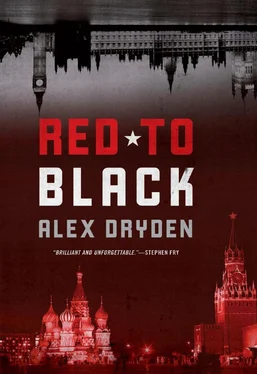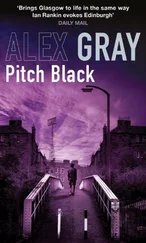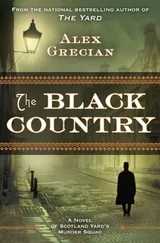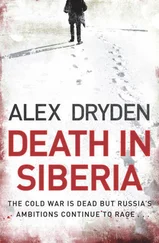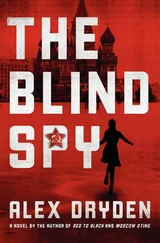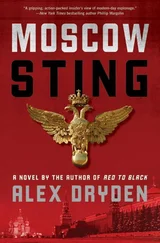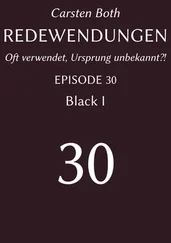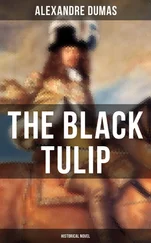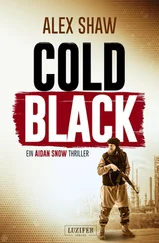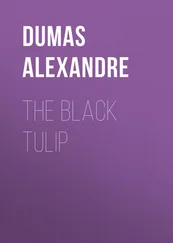‘Is that it?’ he said, but I knew he knew it perfectly well and that my mother’s work made him ashamed and furious.
‘Sit down. You’ll have some tea? Or some vodka?’
‘I only have a few minutes,’ I said. I had nothing to say to him, I realised.
‘I know, I know, you’re busy. You’re doing great work, I’m told. We’ll have vodka.’
He walked with surprising strength of purpose to an inlaid Iranian wooden cabinet I remembered from Damascus days. He took out two glasses and filled them both. I sat on the only chair and left him the sofa.
‘I have a fine view of the Kremlin from here,’ he said, handing me the glass. He raised his own. ‘To Russia!’ he said. He made the toast still standing, drained his glass without waiting for me to drink, and poured another from the bottle in the crook of his arm. I sipped the vodka.
‘You don’t drink to Russia?’
‘To Russia,’ I said and he smiled wolfishly.
He sat down across the low table from me and refilled both our glasses.
‘We are a great power again, Anna. Sure, some heads have to roll, but that is normal. You think the Americans and the British don’t do the same?’
I didn’t reply. I didn’t know why I had agreed to come but it certainly hadn’t been to talk about politics and violence. I felt as if I were in one of his drinking sessions of old and I saw a man who couldn’t express himself without pouring liquor down his throat. And even then, his mind only worked in some impersonal world of power. More power, more control; it was all he and those like him were capable of.
‘Just make sure you don’t lose your head in all of this,’ he said.
I felt suddenly exhausted, after nearly twenty-four hours without sleep. The day had already been filled with innuendo and insinuation, always with some veiled threat in the background.
‘To Vladimir Vladimirovich,’ I said and drank my glass in one to Putin.
He followed me, delighted to be drinking to Putin, and refilled the glasses again. Neither of us had anything to say to the other outside the sterile rigmarole of empty toasts.
I looked around the room out of embarrassment, the need to look anywhere but at him. I realised I hated him. I had hated him for a long time. I wanted to leave but my exhaustion and the vodka begged me to rest a while longer. I took in the tall lamp by the door with its pinkish fabric shade, the low table between us, some bookshelves empty but for a few photographs of men in uniform, a small corner table with curved legs in the shadow of the room, and then found myself staring to the left of him at the sofa on which he was sitting, leaning slightly forward. I felt him watching me. My unease was no longer controlled by the vodka in my stomach. It increased steadily into a thumping heartbeat, a hot flush, and then fear. The room began to take on the aspect of another room, another room much the same as this room of my father’s. It was the room that I had seen in the pictures of Clement Naider.
I don’t remember how I left him, or how I got out into the street. I had to vomit into a cardboard box beside a rubbish bin that overflowed with garbage before I was aware of very much. I remember an old woman laying her hand on my shoulder and clucking sympathetically, offering me a handkerchief and asking me if I was OK, if I needed a doctor.
I took a service car out to Barvikha. Nana was standing at the top of the three wooden steps that led on to the veranda of the dacha. She had watched the car’s lights as it swung on to the track that led to our home. We embraced as the car left, its driver telling me pointedly he would be back at six-thirty the following morning to pick me up.
Nana was much frailer now, nearly ninety years old, but still able to hobble about with a pronounced limp where her hip had given up. The first thing she did as we entered the dacha was to put her finger to her lips and point to the ceiling. The Forest had bugged the house again in time for my arrival. It was too dark to go outside and a driving rain had begun to fall.
We chatted about Finn as we made ourselves supper. Nana said, ‘Have you married each other?’
‘No.’
‘Why not?’
‘He hasn’t asked me.’
‘Then ask him,’ she said and we both laughed, me for the first time that day.
After supper, I crawled into bed and slept.
I DON’T KNOWwhat time it was–sometime after midnight certainly–when I was woken by the sound of hammering on the door of the dacha. It blended with a dream until I was awake and realised it was real. I put on a dressing gown and came out of my room. In the dark I could make out Nana already standing in the living room. No lights were on. She seemed frozen, in the middle of the room, stiff as if at some memory of other night-time awakenings in her distant past.
‘What is it? Nana what is it?’
‘I don’t know,’ she said. Then she turned towards me. ‘Anna, darling,’ she said. ‘Come here.’
We embraced and held each other for a minute perhaps. But the knocking on the door resumed louder than before.
‘Goodbye, darling Anna,’ she said, and squeezed me as hard as her old arms were able.
I broke away from her finally and switched on a table light and we embraced briefly again. I felt tears coming to my eyes, but
hers were clear. She just watched me, watched every movement I made. ‘Get dressed,’ she said, and moved towards the door. ‘I’ll let them in.’
As I dressed quickly, I heard from my room the door open and the voice of Vladimir.
He was standing in the centre of the living room when I came out. Nana was fetching something from the kitchen.
‘I’m sorry for the time,’ he said calmly. ‘Please. Don’t be too alarmed. I expect they’re being deliberately antisocial, that’s all.’
But I didn’t believe him.
‘Where are we going?’
‘The Lubyanka. But first we’ll stop at my place.’
Nana emerged from the kitchen carrying something wrapped in a cloth.
‘Take this for breakfast,’ she said, and glared at Vladimir.
‘I’ll wait in the car,’ he said sheepishly.
Nana and I held each other.
‘Don’t worry,’ she said. ‘I haven’t told you before, darling Anna, but I haven’t got long to go. It’s good. I’m glad. It’s time.’
I cried openly.
From the pocket of her dressing gown she took a silver amulet that I saw was very old.
‘It’s a Tartar charm,’ she said. ‘Made five centuries ago. It will keep you safe.’
With tears in my eyes, I left the dacha and saw her standing in the hot night against the light of the door.
Vladimir drove out of the forest and on to the motorway towards Moscow. We didn’t talk. I sat numbly in the seat beside him and slowly gathered my thoughts. And as I did so, I began to regain some calm. This was routine, I told myself, at least in the perverse world in which my employers operated. If I were being arrested, it would not be Vladimir. They’d have sent their own militia.
We crossed the Moskva River and drove to Vladimir’s apartment near the botanical gardens. He pulled the car into the kerb and put his hand on my knee.
‘Let’s have a coffee before we go,’ he said. ‘And maybe something stronger.’
Upstairs in the apartment on the seventh floor, he made coffee and put a half-empty bottle of vodka on the table in the kitchen. I sat and watched him.
‘I think it’s OK,’ he said. ‘I think they’re just trying to put you on the wrong foot. But you might as well be fortified.’
He smiled at me, poured two shots of vodka, and I drained mine at once. Once more, against my better judgement, I was grateful for his courtesy and care.
Читать дальше
